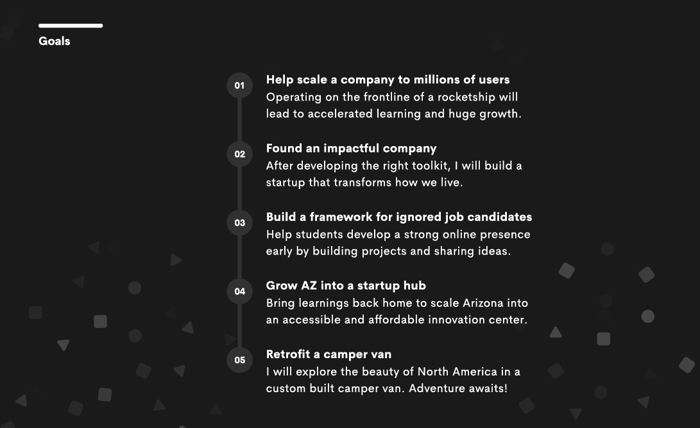As I continue to explore my next move, I’ve focused on authentically sharing my story and adding value upfront.
This has taken shape as a personal pitch deck. I’m using my Otis pitch deck as an example.
Here’s the format that’s landed me conversations and interviews with several startups:
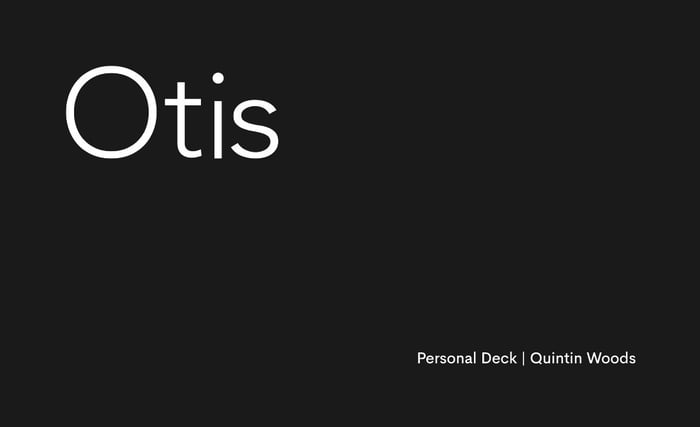
So, why does this work?
It’s easy to submit a resume. Thing is, they don’t tell your full story!
Also, talent management systems are oversaturated. It’s nearly impossible to shine without experience or pedigree (both me!).
Instead, create your own role (more on this later).
Create a shortlist of startups
Life is short, love your work.
- Target companies that you remain excited about over a long time horizon
- Look for signs of breakout: talent flocking, fast user growth, high quality financing round, etc
- Prioritize learning and growth
Identify connections
Warm intros are always better. Remember, trust continues to be the most expensive currency.
If nothing, don’t sweat! Time to go cold. Guess the emails of founders and validate them using an online checker.
Next: time to create the deck.
Why?
Describe why you can’t stop thinking about this company. What about their mission excites you? Why do you believe they’re changing the world?
I’d highly recommend using a specific story to showcase how they align with your identity.
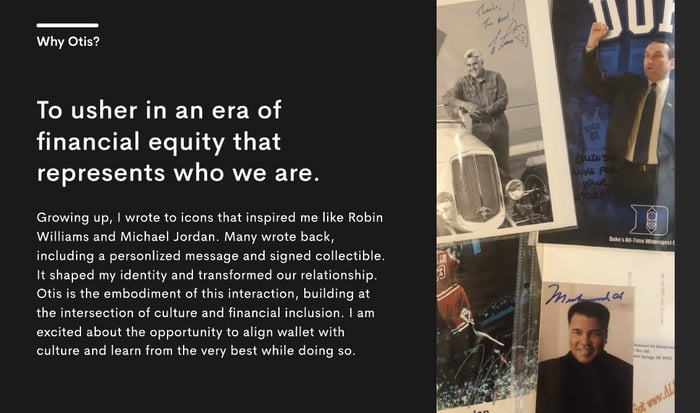
Background
An integral part of pitching yourself is presenting a narrative that sets you apart from the pack.
Use a unique life timeline to showcase the most important elements that have shaped you.
It should be clear that *insert role* is a natural evolution.
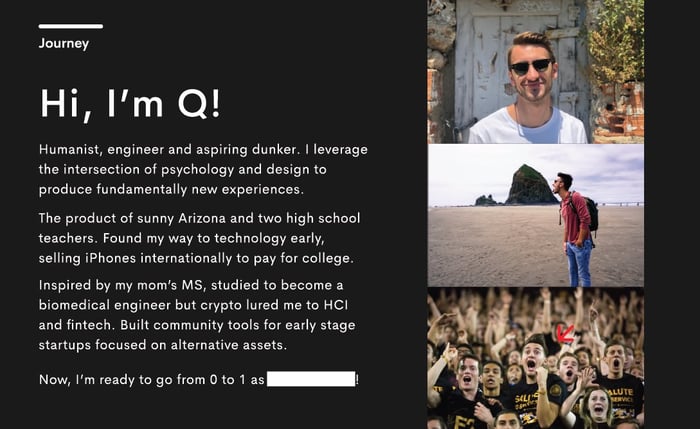
Mentality
How do you operate? How do you tackle problems? These, along with many others, are questions founders are looking to have answered.
As a generalist and all-around hustler, I run through walls to get shit done. That’s why I painted a picture with Kobe (RIP Mamba).
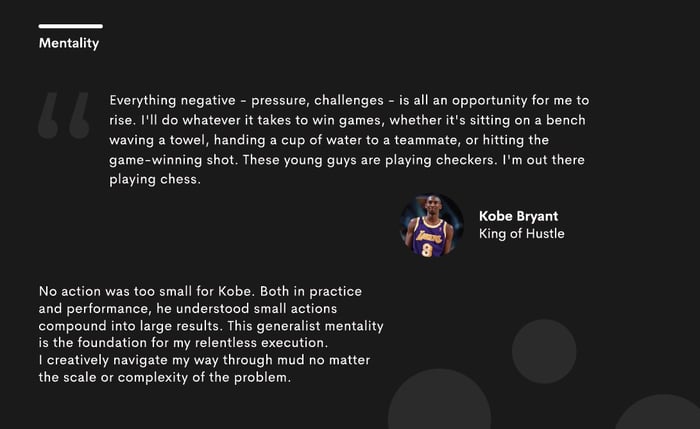
Principles
These are fundamental truths that serve as a foundation for your behavior or reasoning.
They are a fantastic representation of character!
Dig deep for these. It took me several days of self-reflection to iterate and identify those that are most accurate.
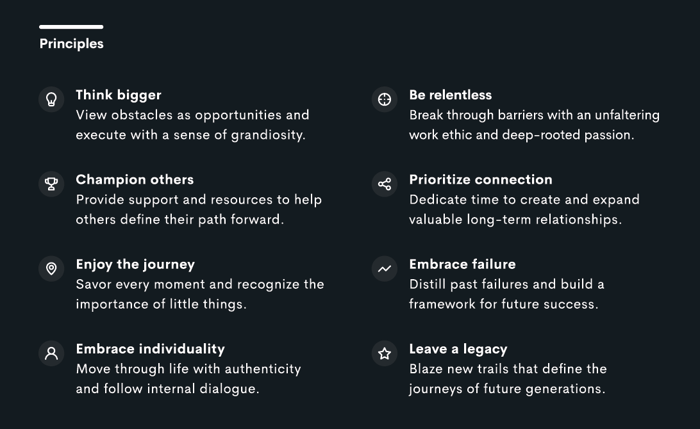
Accomplishments
More stories!
Ideally, they’re newsworthy. Although, stories of small actions can carry similar weight if they are true to you.
My favorite was crowdfunding $2,500 from my college community to send a dear friend on her dream trip:
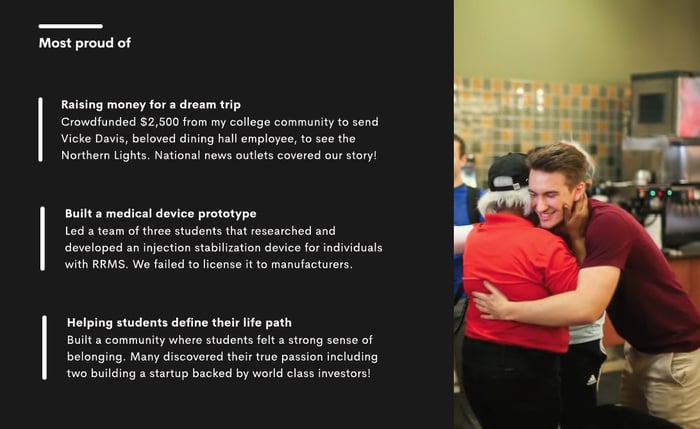
Strengths/Weaknesses
It’s natural to identify/showcase your finest qualities. It’s hard to pinpoint areas of improvement.
Startups are difficult. It’s a bumpy ride full of failure. So, founders want to hear the good AND “bad.”
This was by far the hardest slide for me.
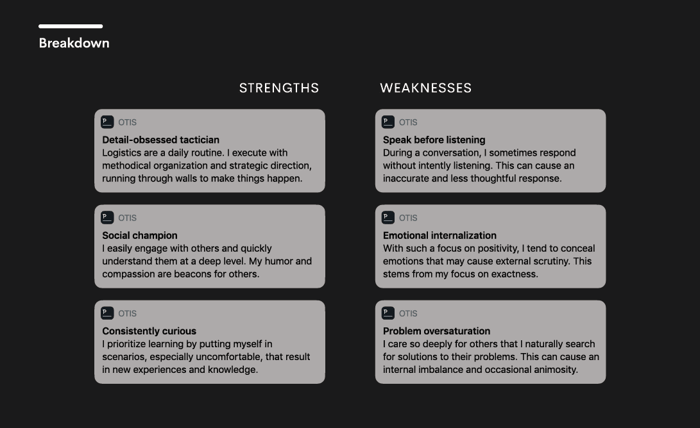
Goals
Create a map for your ideal life journey. It might be rough around the edges and it will definitely change over time. That’s ok!
This shows vision and answers important q’s:
- Where does this person want to go?
- Will working here further propel them down this path?
90-Day Plan
Show you’ve thought deeply about the role you created and have the operational capacity to execute.
This helps the founder visualize you in the role. Plus, it’s an applicable framework that can be put to use if you’re hired.
Will the role into existence!
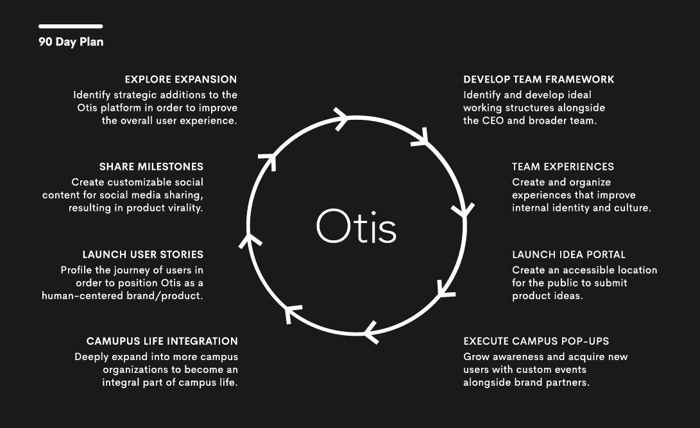
The Final Step
You have the email.
You have the deck.
It’s time to…send it!
Keep things brief; founders have limited time. Reference your passion and mention the role you’ve created.
Direct them to your attached deck (create with Figma, export to PDF). Here’s a general example:
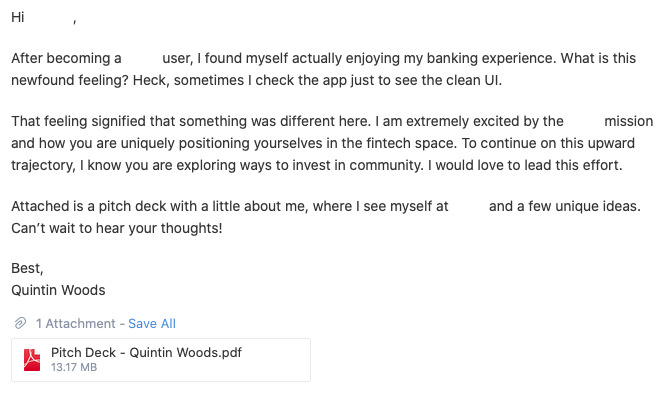
Well, there we have it. A tested way to get the attention of founders building your favorite companies.
Remember, there are others! Share mockups publicly, create a YouTube video, etc. Set yourself apart.
And like Paul Graham says, Do things that don’t scale!
So…who’s hiring? 👋
This post originally appeared on Twitter
Tags:
Career DevelopmentFebruary 18, 2023
